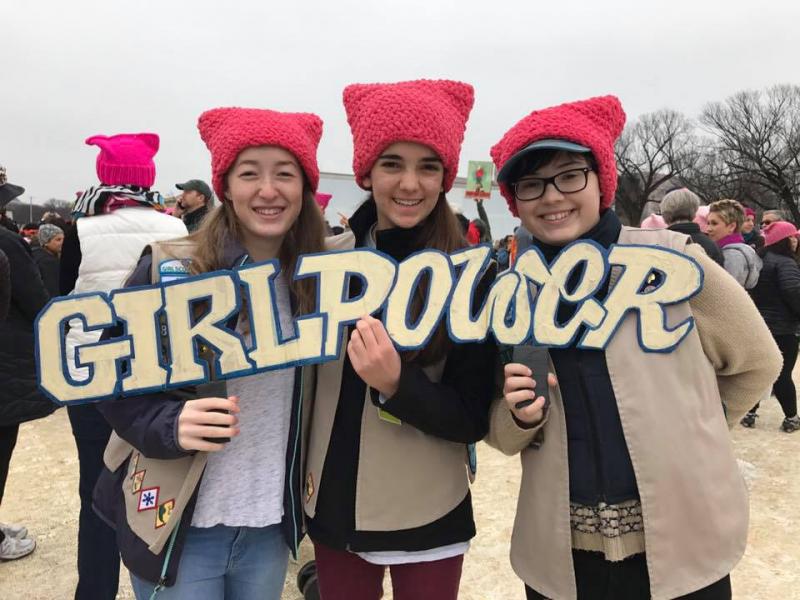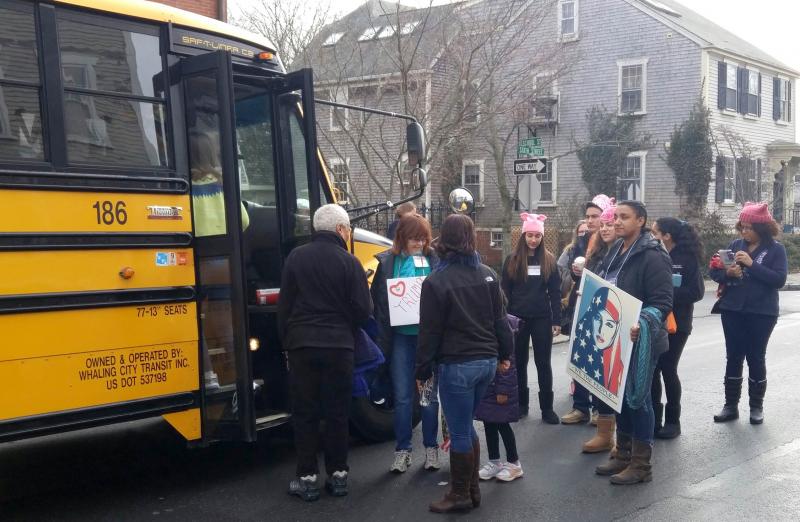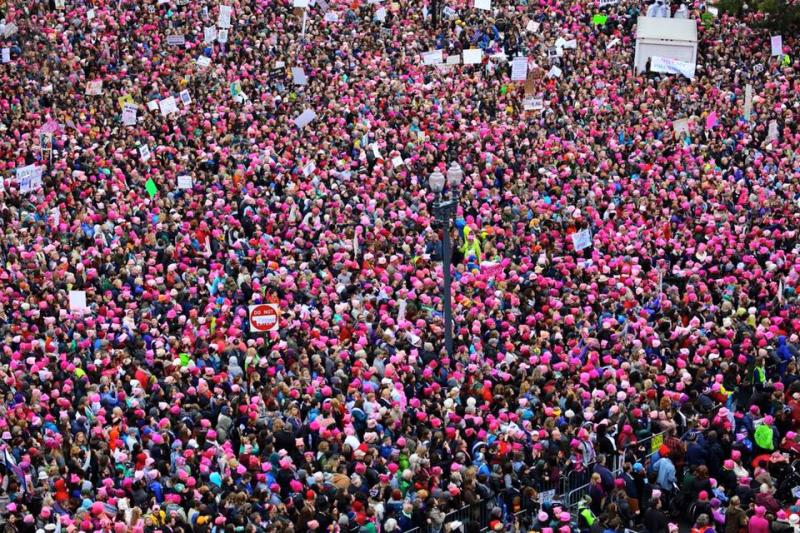Dartmouth residents join Women's March, sister march
While protesters gathered world wide to march for equal rights on January 21, Dartmouth resident Ann Alexander stood in the YWCA parking lot on South 6th Street in New Bedford.
That day, 500,000 protesters gathered for the Women's March on Washington, while sister marches in locations such as Boston, New York, Denver, and Los Angeles also attracted hundreds of thousands. Marchers advocated to end violence against women, for women's reproductive rights, for the rights of people of color and the LGBTQ community, as well as for the environment. There were many anti-Trump messages as well, it being his his first full day in office. Alexander had every intention to join them.
YWCA — a nonprofit organization that advocates against racism, for women's rights, and promotes peace — bused protesters to Boston for the sister march that attracted 175,000. It would be the first protest march that Alexander would ever be a part of.
“I’m here to stand up for women’s rights. Women’s rights matter," said Alexander.
Alexander said one of her main motivators was the recently instated Trump administration, and the possibility of negative changes to women's healthcare.
“You feel helpless because you can’t do anything. I’m just trying to do something,” she said. Alexander added that she missed the chance to march with Martin Luther King, Jr. when he spoke at the Groton School in 1963 because she had young children at the time, and she still regrets not being there.
Fifty-four years later and now a grandmother, Alexander jumped on the chance to make her voice heard, and was overwhelmed by support in the community.
“Just when I arrived here, everyone was glad to see each other,” she said. "It’s the solidarity."
More than 400 miles south, three younger Dartmouth residents were having a similar experience in Washington, D.C.
“Everyone was just so happy to be there,” said Lucy Tibbals, a Dartmouth High student and part of Dartmouth Girl Scout Troop 80117. “Everyone was so happy that we were there as Girl Scouts.”
Tibbals said marchers stopped to take photos with her and her two peers, Abby Keith and Sarah Costa. They all sported their Girl Scout vests, along with pink PussyHats — a statement against President Donald Trump's "locker room talk."
The girls had arrived on the outskirts of the city around 1 a.m. on January 21 with troop leader Kim Taylor and friend Linda Keith, but the 10 hour drive was more than worth it for the group.
“We wanted to bring attention to to the fact that inequality is still in existence today,” said Abby Keith.
Keith, a soccer player, used the sport to further explain that wage gaps — such as the one between the U.S. women’s soccer team and their male counterparts — are only one real example of institutionalized inequality. In 2014, the women’s team earned one fourth that of the U.S. men’s team, despite having been crowned champions while the men’s team only won 11th place.
“It made us feel really good representing our town, representing our generation,” said Tibbals. The girls plan on furthering their advocacy by continuing in the Girl Scout program and keeping their education up-to-date.
“We’re not backing down. There’s so many people that support each other,” said Costa, explaining that she now has a whole network of people behind her as she continues her advocacy.
The adult chaperones explained that it was important for the girls to take part in what is already being called “historic” for its record-breaking turnout.
“It’s my job to help them learn how to be leaders,” said Taylor. “It was an empowering experience for them to realize that girls can do anything when they band together.”
For the girls, the march was a once-in-a-lifetime experience. “It was very peaceful, and so uplifting,” said Costa, explaining that protests can sometimes get out-of-hand. However, that wasn’t the only memorable part of the trip.
“I’ve never been on a train before, so the Metro was fun,” said Tibbals. The girls also visited the National Museum of Natural History.

















